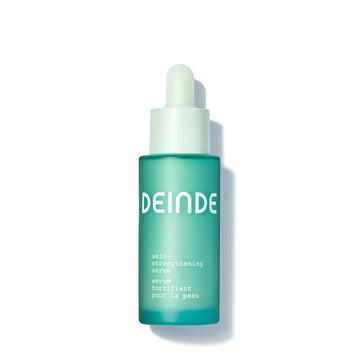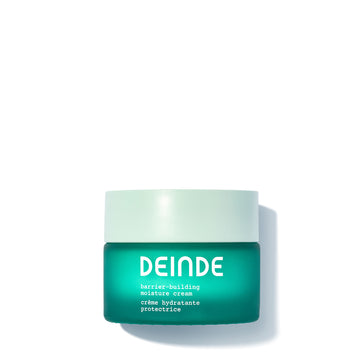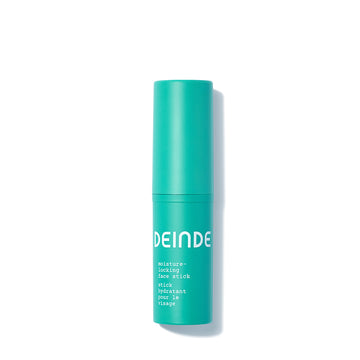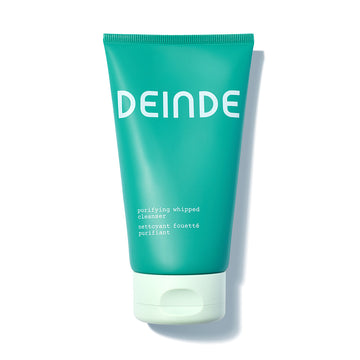
Here's What Collagen Deficiencies Look Like — And How To Fix Low Levels
Collagen creamers, collagen protein powders, collagen candy, collagen 'anti-aging' serums — the vast amount of collagen-specific products on the market give a sense of just how popular this protein is and why consumers grasp onto methods to boost production.
As one of the body's most abundant structural proteins (up to 70%), collagen provides strength, elasticity, and vitality to a range of tissues. Essentially, having enough collagen is what keeps the skin looking plump, healthy, and structurally sound.
You may be noticing a theme in our biological processes — as we age, elastin and collagen naturally break down, resulting in thinner skin and wrinkles. This is where preventative measure and smart skincare come into play. While you can’t reverse what has already occured, you can step in with methods and supportive products to ensure your path is graceful.
The collagen matrix
Think of collagen as the building block of our tissues and organs. Composed of dense, fibrous structures, collagen provides tensile strength and contributes to the organization, mechanics, and shape of tissues. It works hand in hand with the elastin protein to create that bounce so sought after in skin. Considered extracellular matrix molecules, there are 28 types of collagens found in the body — with I-III as the most predominantly found.
Type I → Found in skin, tendons, and bones to provide firmness and structure through amino acid-rich composition. It also makes up part of your gut lining. This dense fibrous collagen makes up 90% of collagen in the body and is the easiest to replace with animal and plant-based sources.
Type II → Found in cartilage to encourage cushioning and joint flexibility. Type II has more of a mesh-like structure, useful for movement and cartilage integrity. Degradation of Type II is where joint stiffness comes into play.
Type III → Usually working in conjunction with Type I, Type III collagen contributes to the suppleness and resilience of skin via elasticity. It provides structural support and ensures efficient blood flow.
This connective tissue protein plays a pivotal role in sustaining healthy skin. Beyond encouraging firmness throughout, collagen molecules help bind water to skin cells and prompt cell migration and tissue regeneration when the body is damaged. Healthy levels of collagen result in efficient wound healing and minimal scarring. Additionally, collagen is known to promote the following processes:
- Encourages tissue regeneration → Collagen acts as a guide for damaged cells — recruiting support from other cells and initiating the repair process. The protein contains integrins, a binding site that anchors cells that are in the midst of repairing themselves
- Moisture retention → Collagen contains hydrophilic amino acids that easily bond with water molecules. At the same time, the triple helix structure of collagen creates space for water molecules in between its fibers
- Immune response → As collagen acts as a microenvironment, it can influence the body's immune response by suppressing the release of pro-inflammatory signaling molecules like cytokines and chemokines
What are some symptoms of collagen deficiency?
It’s important to note that there is a difference between natural collagen loss and a collagen deficiency. Through a range of external influences (excessive UV exposure, smoking, genetics, pollution) the body may show signs of deficiency much earlier than normal aging timelines. If you have concerns about deficiencies, it’s wise to go to your dermatologist to figure out the best course of action for your lifestyle.
Here’s what to keep an eye out for when it comes to a lack of collagen:
- Visible signs of aging, like wrinkles and loss of skin elasticity
- Excessive cellulite
- Hollow cheeks
- Brittle hair and nails
- Joint pain and stiffness
- Muscle aches or loss of muscle mass
- Loss of circulation
- Poor gut health
- Slow recovery time after injury
How are collagen and aging related?
In your mid-twenties, collagen production starts to decline due to inefficient turnover of collagen fibers. According to various studies, collagen decreases in the human body at a rate of 1% per year. This marks a state of maturity for the skin. Collagen decline picks up after menopause as well.
At a granular level, the body’s overall metabolic activity slows down alongside decreased fibroblast activity. This means that fibroblasts, the connective tissue cells responsible for collagen production, lose their ability to divide and function efficiently. With age, fibroblasts can enter senescence when exposed to DNA damage, telomere shortening, or oxidative stress.
Collagen x Inflammaging
In the body, it’s rare for any process to happen in a silo. Rather, processes impact each other — either encouraging healthy actions or perpetuating harmful cycles. Inflammaging, low-grade chronic inflammation, encourages the breakdown of collagen by triggering enzymes that degrade collagen fibers. As we age, the immune system’s ability to regulate inflammation becomes less efficient, prolonging low-grade inflammation.
Here’s what that sustained inflammatory state looks like for collagen:
-
Collagen breakdown → Inflammaging is recognized to release pro-inflammatory cytokines and matrix metalloproteinases that physically break collagen fibers
- Collagen stiffness → The elasticity of collagen becomes compromised when inflammaging promotes advanced glycation end-products (AGEs), compounds that link collagen. AGEs have been known to step in and stiffen fibers, resulting in a loss of supple skin and enhanced fine lines
How to fix low collagen levels
Collagen support can be split into two different areas: lifestyle shifts and topical products. These strategies both trick the body into making more collagen or relieve the pressures that result in stunted production.
Lifestyle
-
UV protection → Ultraviolet rays accelerate degradation and skin aging — you can prevent additional collagen damage via ample sunscreen and physical skin protection. Think hats, long-sleeved shirts, and avoiding the outdoors at peak sunlight
-
Stress management → Chronic stress elevates cortisol levels, which disrupts collagen synthesis. Reducing stress through a variety of methods (sleep management, therapy, meditation, exercise) creates a healthier environment for collagen production
- Shift away from smoking → Smoking is known to trigger inflammation, exacerbate collagen decline, and impair tissue health
- Maintain a healthy diet → Getting plenty of collagen-supporting or collagen-rich foods like citrus fruits, bone broth, and lean protein sources can help maintain healthy collagen levels
Topical
Look to collagen-supporting, sensitive-skin-friendly skincare products that contain the following ingredients to jumpstart production:
- Peptides → Peptides, known as the building blocks of proteins, help support healthy levels of collagen and elastin
- Ceramides → Lipid molecules that maintain the moisture balance
- Vitamin C → An antioxidant known to protect skin from free radical damage and support healthy collagen levels
Studies cited:
- Biochemistry, Collagen Synthesis - StatPearls | NCBI Bookshelf
- Collagen Supplements for Aging and Wrinkles: A Paradigm Shift in the Fields of Dermatology and Cosmetics | PMC
- Defining skin aging and its risk factors: a systematic review and meta-analysis | PMC
- Characteristics of the Aging Skin | PMC










